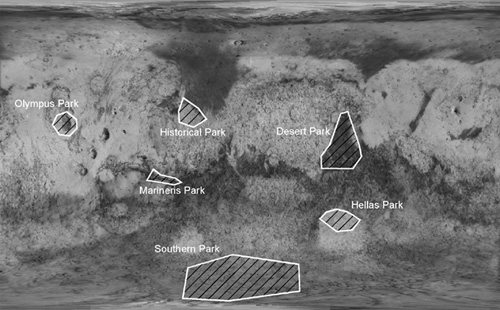|
It's the Astronomy Online non-Blog, or un-Blog.
Everyone has a blog now and since I am no follower of trends, I decided to merge the blog with the website. And I don't want to neglect the website in favor of posting on the blog.
These are the pages that were on the blog of old:
- Home
- Archive (Index of Pages)
- Me
- Current Trends
- Links
- Soho Live
Links:
Google Maps - Mars
Google Maps - Moon
HiRISE
HiRISE - MRO Imaging
Mac Singularity
Meade4M
Slackerpedia Galactica
Software for the Mac
Starry Night Online
Venus Maps
More Favorites:


































Thank you for visiting!
|
|
 |
|
Space Law - Can land be owned on the Moon or Mars?:
I have always had a bad feeling about certain websites selling land on the Moon and Mars. Its almost as bad as having a star named after you! Until recently I have never known of any law that allowed or prohibited such actions.
In regards to purchasing a star name, this is nothing more than a novelty item. The databases used for this service ensures that one star will not have any more than one name - but the official name is decided by the IAU (International Astronomical Union).
As far as owning land on the Moon or Mars, I think this is just plain terrible. The Lunar Embassy is one such place (perhaps the only one, but I do not care to research this) that offers land on the Moon. So what does Space Law say about this?
The Outer Space Treat of 1967 states quite clearly in Article II:
Outer space, including the moon and other celestial bodies, is not subject to national appropriation by claim of sovereignty, by means of use or occupation, or by any other means.
The United Nations also drafted the articles of Space Law and in regard to the Moon:
The Agreement Governing the Activities of States on the Moon and Other Celestial Bodies, the Moon Treaty, was codified in 1979. Its basic purpose was to insure that any wealth obtained from the Moon by any space faring nation was to be distributed to all the people of the world. This treaty was the culmination of the time when the world's underdeveloped nations were attempting to use international forums to assert their rights as sovereign nations and to obtain their share of the world's and space's resources.
In the Moon Treaty is a phrase which states that the Moon is the "common heritage of all mankind." The Outer Space Treaty had words which sounded similar - "the common Province of all mankind", but actually meant that no single country could claim outer space or other celestial bodies as colonies, but it permits the use of the resources. "The common heritage of all mankind" is a phrase which means all the resources of space belong to all nations and the use or extraction by one nation is against this treaty. There is also an international organization established to redistribute the wealth returned from the moon and Outer Space. This interpretation of the treaty is disputed and has resulted in the U.S. and Soviet Union/Russia not signing the treaty.
It is true that Russia and the United States did not sign the United Nations treaty - most likely because of the intense competition between both countries (this treaty was drafted in 1958). The fact that seven countries did sign this treaty makes any claim of ownership in dispute.
Note that these treaties also cover all bodies - including Mars. A Nature article published in 2004 is a very interesting read. Two scientists, Charles Cockell, a microbiologist for the British Antarctic Survey in Cambridge, and Gerda Horneck, an astrobiologist from the German Aerospace Centre in Cologne, Germany are pushing for several locations on Mars to be protected by National Park status.
If you "own" land in these areas, they may also be in default.

Buying land on the Moon and/or Mars is only a novelty item. Save your money - or donate to Astronomy Online instead!
Next Post | Previous Post | Back to Top
|
|

